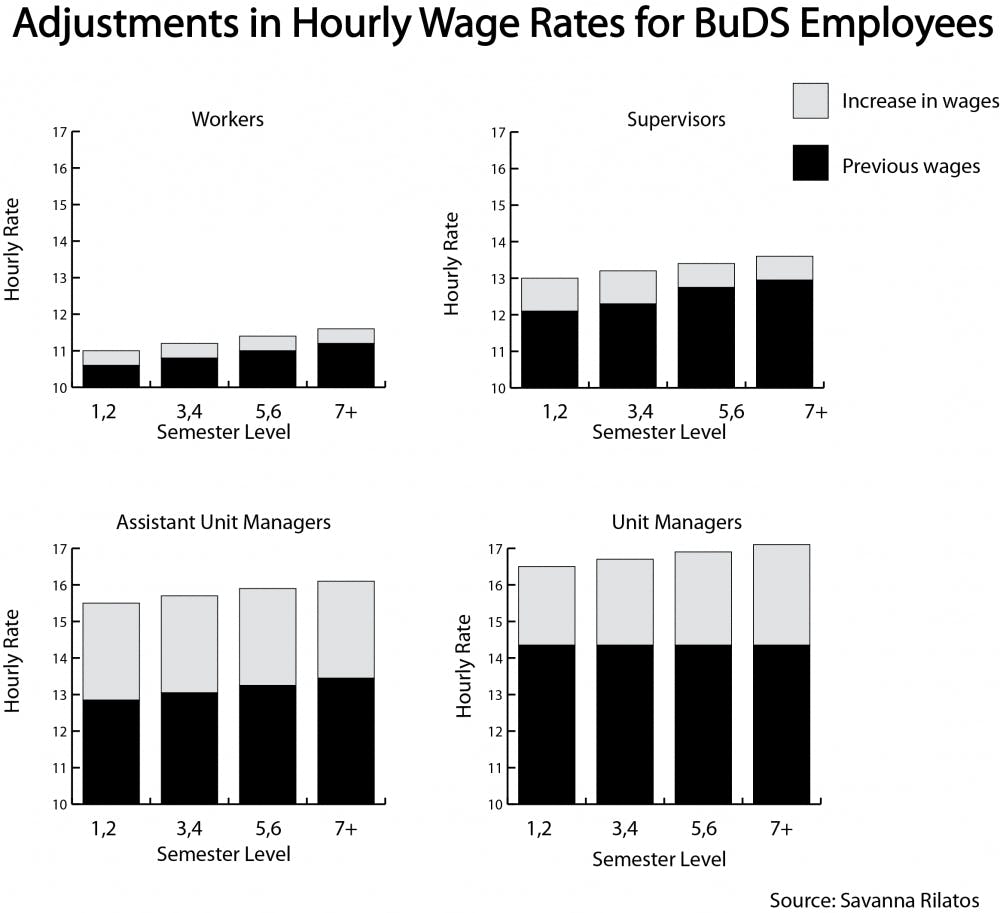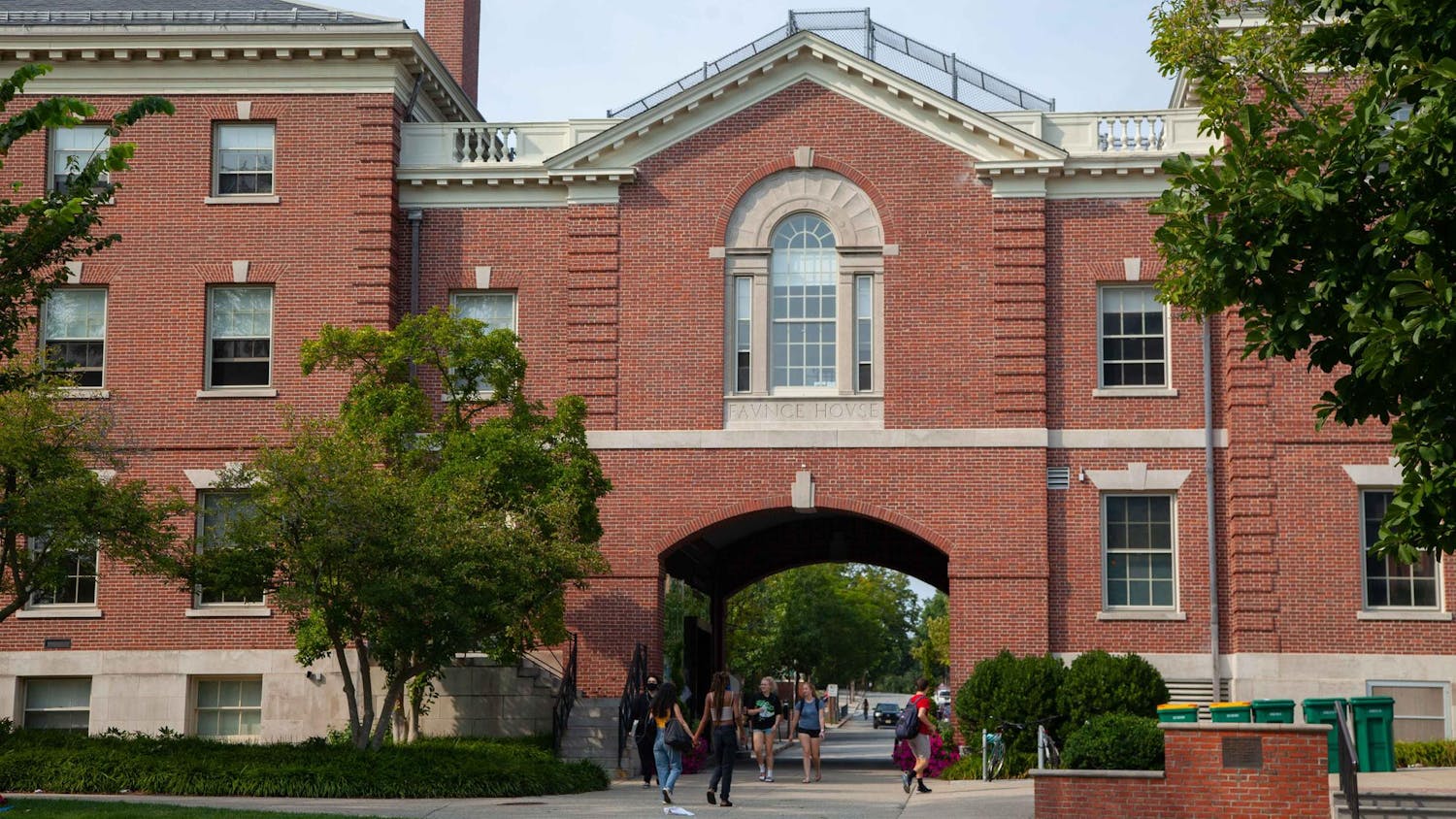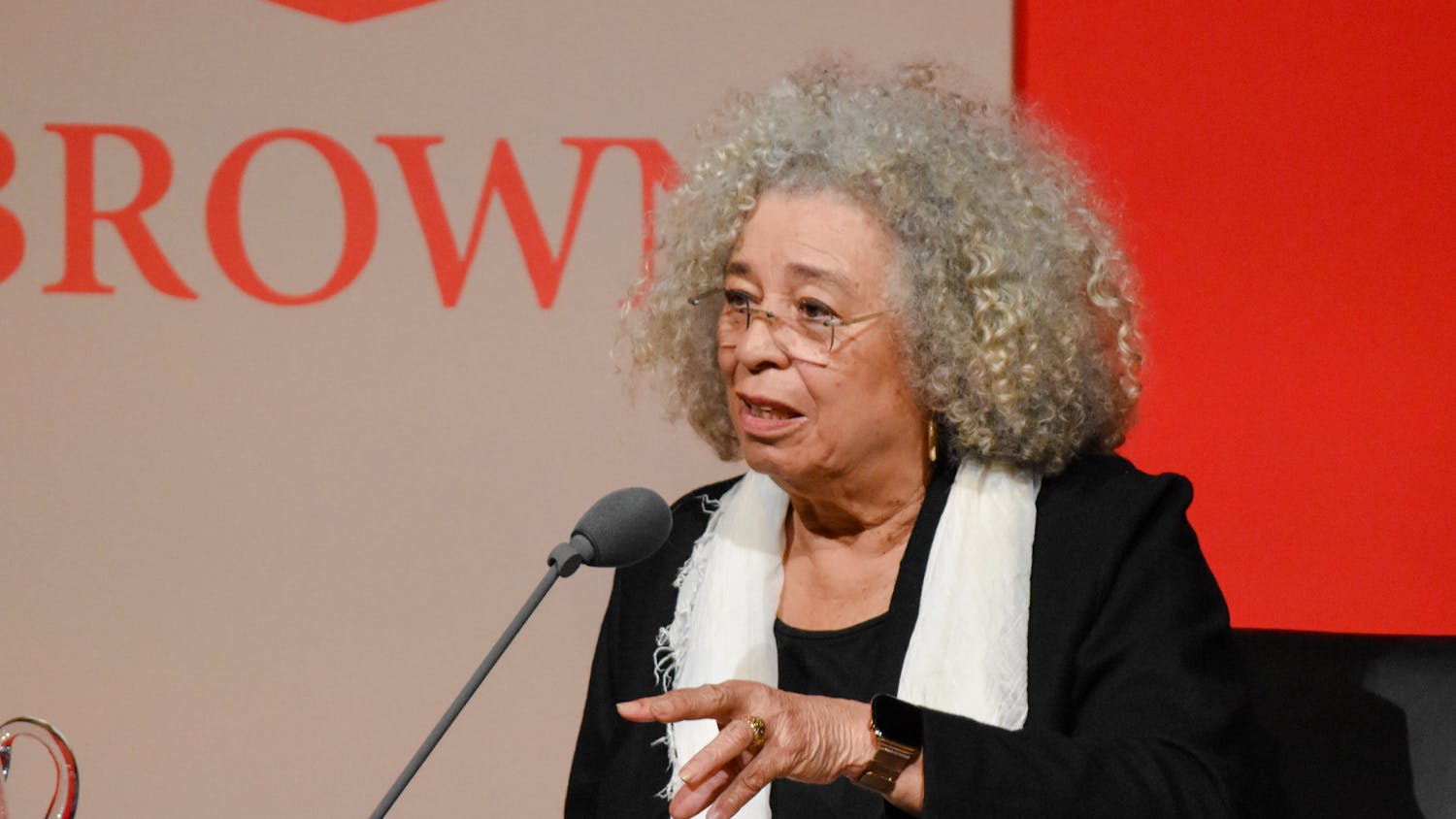Following discussions between Brown Dining Services and the BuDS student management team, Dining Services raised student workers’ wages for all positions, wrote Director of Dining Services Peter Rossi in an email to The Herald. As of Nov. 2, workers’ starting rate increased from $10.60 to $11.00 an hour. Supervisors, assistant unit managers and unit managers’ pay differentials increased to $2.00, $4.50 and $5.50 above the base worker rate respectively, Rossi wrote in a separate email to the student management team.
The starting wages for junior and senior supervisors were previously $1.50 and $1.75 over the base wage, respectively, The Herald previously reported. Assistant unit managers previously earned $2.25 over the base wage and unit managers earned a flat rate of $14.35 an hour, wrote Savanna Rilatos ’20, general manager of BuDS, in an email to The Herald.
Discussions about wage increases have been in progress since August, Rilatos said. Supervisors and unit managers have reported feeling overworked and underpaid, The Herald previously reported. Since mid-October, “staffing has gotten so much better,” Rilatos said, adding that several new supervisors have been hired in the past week.
In addition to implementing these wage increases, Dining Services has eliminated on-call hours for carts, cashiers and Blue Room workers, Rilatos said. To fill these hours, Dining Services “added shifts for non-student employees” and continues to “review operational adjustments to further support this change,” Rossi wrote. Carts Unit Manager Katherine Jimenez ’20 and Assistant Director of Retail Dining for Dining Services Bobby Noyes were instrumental in redesigning the on-call system for carts, Rilatos said.
Under the new system, units “will have the direct support of retail professionals … to help with subbing, no-shows and other day-to-day necessities” on weekdays from 7 a.m. to 5 p.m, Jimenez wrote in an email to BuDS workers. After 5 p.m. or on weekends, carts supervisors may choose to take paid shifts where they cover for workers if needed, Jimenez told The Herald. A similar system has been implemented in both the cashiers and Blue Room units, she added.
“So far, supervisors have loved” the new system, Jimenez said. “Not being on call during the day has taken off so much of the burden on them.” After hearing about Dining Services' new policies, one supervisor who had quit even took her job back, Jimenez added.
In the future, Dining Services will look “closer at hour caps to ensure our supervisors and managers are working manageable hours,” Rilatos wrote in an email to BuDS workers. Capping hours “shouldn’t be too hard, but it’s all a process,” Rilatos said.
Dining Services has also “created a working group to explore longer-term improvements to the student-managed program,” Rossi wrote. Barbara Chernow, vice president for finance and administration, will chair this group, which plans to review current protocols and recommend “changes to improve the overall program, strengthen communication among student managers and the Dining Services team and better support student needs,” Rossi wrote.
Many students are still pushing the administration to make further changes. A group of former and current BuDS employees formed Brown Students for BDS Accountability, which is advocating for Dining Services to retroactively compensate workers for the hours they spent working on call in the past. Per University policy, students who worked on call were required to be paid, as The Herald previously reported. Though Jimenez is not involved with the group, she said she supports workers getting compensation for past on-call work.
Overall, “people are really excited” about the wage increases, Rilatos said. She is grateful that Dining Services gave her and Assistant General Manager of BuDS Benjamin Potee ’19 “a lot of agency” in the wage discussions.
“Now, we’re in a really good place,” Rilatos said. “I hope (higher wages) recruit us more workers and (make) us more competitive. I hope people feel really appreciated for the work they do.”





